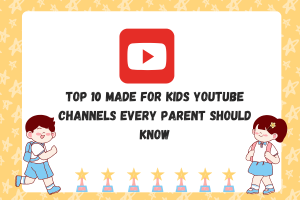How to Build a Sales Culture Worth Celebrating

As much as you might want a sales team’s success to be clearly definable with data, there’s more to it. Yes, it’s still important to measure success according to sales, KPIs, ROI, etc., but there’s something more difficult to measure, which nevertheless has a major impact on your business’ overall success: culture.
A toxic sales culture can deplete morale, stifle productivity and jam up the sales pipeline. Worse yet, it can have perfectly good sales reps heading for the door. Let’s look at why sales culture is important for your business, and how to build a winning culture, one worth celebrating.
Why Culture Is Important in Your Sales Team
To better illustrate why having a healthy sales culture is important, let’s look at what an unhealthy culture looks like: overly competitive, work-‘til-you-drop, uncommunicative and always changing. Salespeople are forced to prove their merit without much feedback from management, nor much admiration for their hard work. A culture like that practically invites low morale and high turnover.
Who would want that? From a business standpoint, it’s all wrong – that high turnover costs major money, and that depleted morale freezes productivity. But from a human standpoint, as well, it just seems like a miserable environment in which to work.
Not to mention, having an unhealthy sales culture can negatively impact your ability to acquire high performing talent. One whiff of a lousy work culture, and that asset you were about to hire – or already did hire – is going to pack up and move elsewhere.
How to Build a Winning Sales Culture
To start building a winning sales culture, see what VanillaSoft can do for you with their sales engagement platform. A sales engagement platform helps even your newest reps perform better than they would with a list-based CRM alone. Management can set up a sales engagement platform to help create a proven, repeatable sales process.
Not only can sales managers refine and scale successful sales scripts and approaches, but they can also route the leads most likely to take the next step in the sales process. SDRs call the best leads next instead of searching for what they think the next best lead will be.
While some reps may initially see these controls as a negative, once they begin experiencing the wins, they will often feel more empowered, better equipped, and happier in their work. Plus, the sales manager feels great because he/she has more success from the laggard to the star performing compared to what they had with a list-based CRM
An easy-to-use sales engagement platform automatically assigns SDRs the next best lead to work, automating the cadence as well to ensure that every lead is thoroughly worked. It also gives management a clear view of each rep’s sales activity, so you can be proactive in coaching your and providing helpful, usable feedback.
With software in place to simplify the sales engagement process, and performance visibility to help you provide good feedback, start sussing out the strengths and weakness of each team member. Through regular meetings and mentorship, foster those strengths and work on those weaknesses. Then create opportunities for upward mobility – promote salespeople who perform well and who add to the culture. Part of what makes a culture healthy is that it allows for growth, and reinforces talent.
Finally, when it comes time to hire new salespeople – even if it’s to replace a junior SDR who you promoted – hire for the culture you want. If you want a transparent, supportive and laser-focused sales team, hire someone who can demonstrate those traits. Before long, you’ll start to build a team of long-term, high performing assets.






